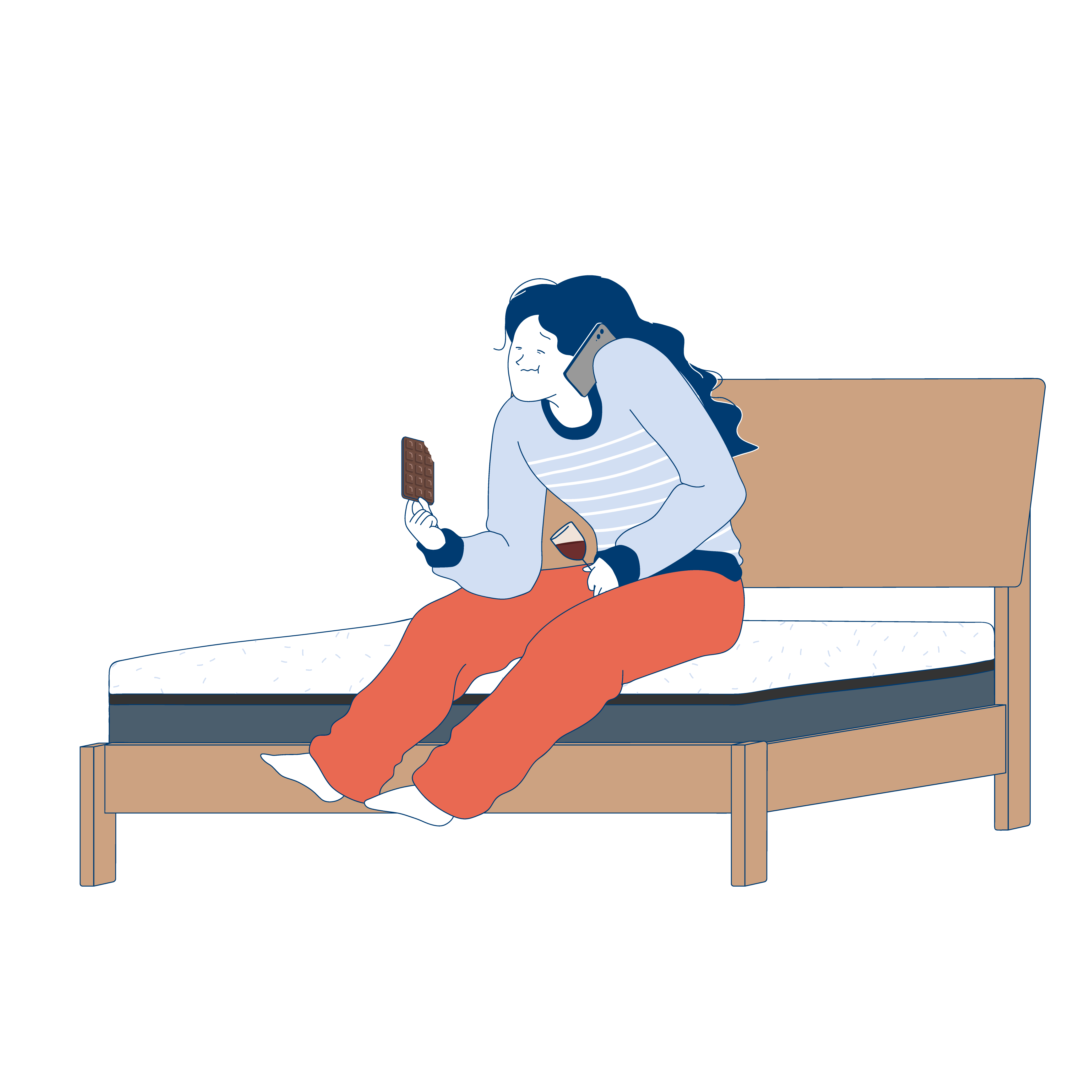This year has been a year of change. With many of us now working from home, it is becoming difficult to separate our work and home life.
We spoke with Bev Roberts, a Well-Being Transformation Coach, about the impact of sleep deprivation on businesses and how we can improve the quality of our sleep.
People who are sleep deprived have an increased risk of contracting a virus when exposed to it. Right now is the ideal time to learn how to get quality sleep despite any physical isolation.
You may be thinking that’s easier said than done, especially when there’s added stress with working from home, home-schooling, and a myriad of other concerns.
Sleep Is Your Secret Business Weapon in Physical Isolation
On a scale of 1 to 10, how would you rate your energy right now?
If you rated an 8 – 10, you’d experience these benefits:
- you bounce out of bed
- are fully alert
- you maintain energy throughout the day
- feel smart and creative
- are effective and efficient across the day
Where 1 – 7 would include challenges like:
- you wake to an alarm
- it takes time for your brain to function
- you experience energy slumps or feel tired at different points during the day
- you reach for sugar, chocolate or coffee in the early afternoon
- at night if you choose to work you feel manic, but you’re getting it done
Not one person who’s spoken to me about sleeplessness has been thriving with lots of energy. You can convince yourself as much as you like that you don’t need 7.5 – 9 hours’ sleep, but your body is screaming otherwise.
If you have any symptoms like productivity issues, brain fog, weight issues, hormonal imbalances, skin issues or poor gut health…
The first step is quality sleep.
Your Days and Nights Have Become Blurred
Studies published in the journal Current Biology show that changes to school and work schedules and more time spent at home has led people to sleep more on average, but one of the studies found that the pandemic has impacted the quality of that sleep.
One of the reasons is that your days and nights have become blurred. Perhaps you’re still slouching in your PJs at the start of the working day, so by the time you get going, you end up working at night to get things done.
You’re making decisions in the short term that are going to cost you in the long term.
Here’s what it costs you in the long term:
- Clarity in your brain
- Hormonal and weight regulation
- Health and well-being
The question to ask yourself is: are these things actually important to you?
Posting on social media late at night only reaches people like you freaking out about not getting your work done. It’s damaging you and your business by posting after 9.30 pm, so go to bed.
Scrolling Facebook or watching Netflix (or any screen with blue light), having a glass of wine (in fact any alcohol) or eating chocolate at night is not a recipe for quality sleep.
“If you want to wind down to restful quality sleep do something that is going to replenish yourself”
A simple equation: Optimal Sleep = Optimal Energy
 Since I’m Stuck Home All Day, Do I Still Need a Sleep Routine?
Since I’m Stuck Home All Day, Do I Still Need a Sleep Routine?
- Going to bed and getting up at similar times is key. This applies to both weekdays and weekends as this allows your internal body clock to build a healthy sleep/wake cycle.
- At least 60 minutes before bed get off all devices and start winding down to rest.
- Make a list of calming, nurturing activities to do in this time like reading a light novel, a soak in the bath, or chatting with your partner on light topics.
How Many Hours of Sleep Should I Be Getting during This “Stay at Home” Time? I Feel like I Want to Sleep All the Time!
- The average adult requires about 7.5 – 9 hours of quality sleep a night.
- Drowsiness can be from poor diet, especially junk food, lack of movement or too much sleep.
- Only nap if you need to and keep it short: about 20 – 30 minutes and before 2 pm.
How Can I Be More Productive during the Day?
- Use the Pomodoro technique where you work for 25 minutes then take a 5-minute break
- Decide what time your working day ends and set aside 15 minutes before this point to;
- Make a note of what you feel accomplished about
- Decide the top 3 priorities for tomorrow
- For each priority what is the very next step you need
- Tidy your desk and close down your computer
My Mind Seems to Be Racing These Days, Even When I Sleep. Can I Quiet It?
- How are you managing stress actively in the day? Focus on now, not the future or the past
- Practice gratitude and mindfulness despite the current situation
- Move your body daily, notice where you hold the stress and breathe into it
- Create a worry period – journal in the morning and at the end of your working day – dedicated time for worry, and this allows your subconscious to process the worry and let go.
About the Author
Bev Roberts is a well-being transformation coach and bestselling author. Through Living Fabulously with Bev, she works with women in business who constantly feel exhausted – that’s a sign your body isn’t coping, and something needs to change.



